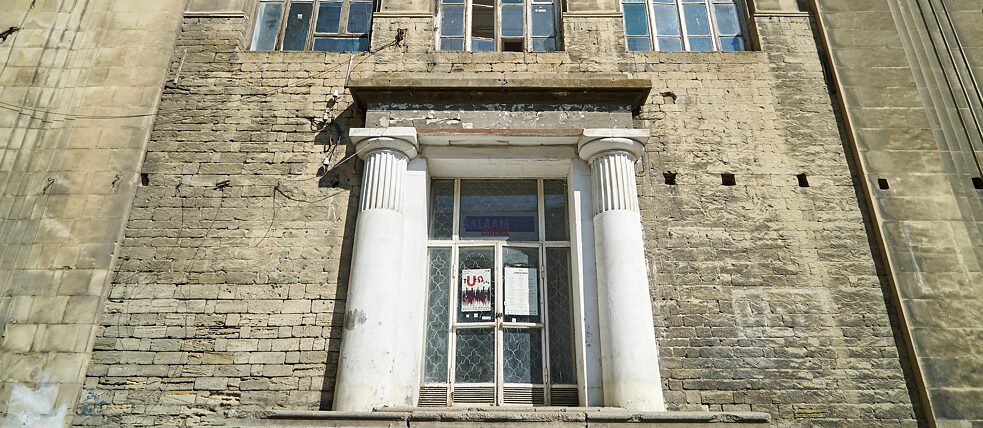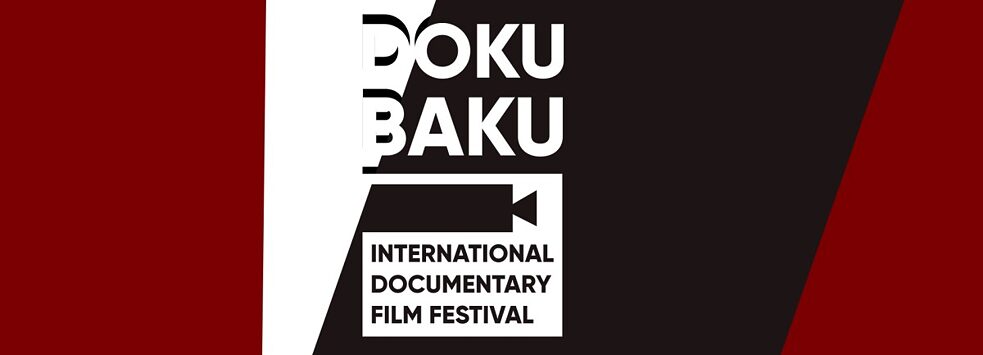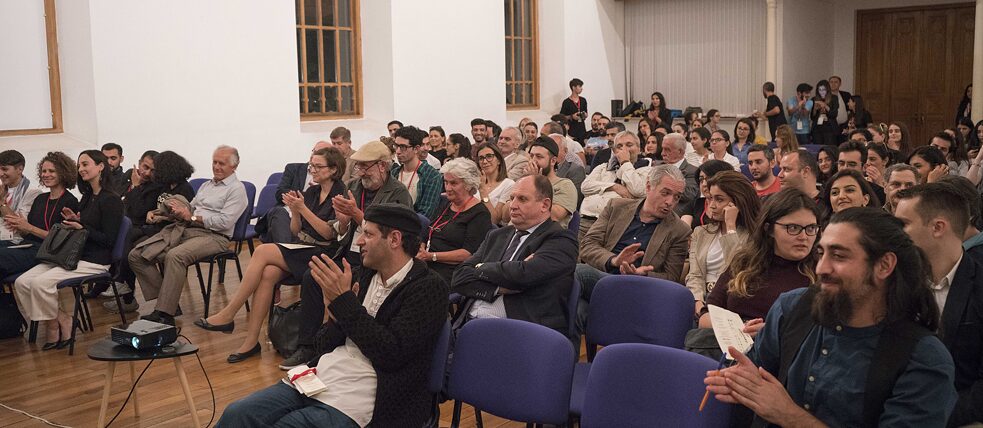2019 "DokuBaku" Documentary Film Festival
The Shimmer of Perception

"Truthfulness" was the motto of this year’s "DokuBaku" Documentary Film Festival in Azerbaijan. In close cooperation with the Goethe-Zentrum Baku, 38 films from around the world were shown at three venues. The independent film festival was launched in 2017 in Azerbaijan with the aim of supporting local filmmakers and non-fiction film genres.
By Georg Seeßlen
 The official logo of the "DokuBaku" Documentary Film Festival | Artwork: DokuBaku
The official logo of the "DokuBaku" Documentary Film Festival | Artwork: DokuBaku
Those who see pictures in the cinema experience a wondrous shimmer of perception, which they can then later, in reality, verify and supplement or they can subject a fresh supply of impressions to critical reflection on the screen. How close film and reality can get “instantaneously” was experienced multiple times in the third edition of "DokuBaku", the Documentary Film Festival in the capital of Azerbaijan. And twice it was directly about the cinema itself. One film, "Saving Salaam", as a cinema directly described the civil society struggle for a place rich in history and symbolism that is far more than a cinema, but a haven of cultural self-determination. And the other, "Once Upon a Time in Shanghai" by Leyli Gafarova uses the making of the feature film "The Bra" aka "The Train Driver Searching for Love" as the background for the portrait of a beautiful and “wild” Baku district and its people: It was called “Shanghai,” no one knows exactly why anymore, and a train went right through it. Now the excavators have already destroyed more than half of it. What will remain in the end? A film and memories.
A form of collective memory
Perhaps this could be seen as a leitmotif in the selection of films for "DokuBaku" (a total of 38 films in 25 performances): documentary filming as a gesture against forgetting. It is sometimes nostalgically wistful, such as when it’s about the everyday lives of old women living in humble and idyllic nature, or wolf stories told by Portuguese shepherds, but it can also be painfully present as in "Taste of Cement" by Ziad Kalthoum, which looks at war and reconstruction, trauma and exploitation in Syria and Lebanon (the film was in German cinemas last year). It is a film that, like the prizewinner "The Disappearence of My Mother" by Beniamino Baresseni, shows that close observation and cinematic poetry are not contradictory. Films can be a form of collective memory in which the story is not always and only written by the winners. That alone makes them political, even if, for one reason or another, they (have to) abstain from expressing direct opinions. "In Between" by Samir Karahoda from Kosovo was awarded as best short film. It is a story of hope and justice, condensed in the effort to build exactly the same houses for the children whose return from forced migration is longed for.
 At the opening of the festival in the Kapellhaus of Baku, site of the Goethe-Zentrum | Photo: Adil Yusifov
At the opening of the festival in the Kapellhaus of Baku, site of the Goethe-Zentrum | Photo: Adil Yusifov
Cinematic attitudes
The "DokuBaku" Documentary Film Festival offers visitors two aspects. One is a sample of international documentary films, both shorts and full-length, but the second, perhaps even more interesting for festival visitors coming from afar, is an insight and overview of local events in the field of documentary work – although the documentary here is not seen dogmatically. Even essayist and animated films have a chance here. And the three main venues are as different as the film programme: the Kapellhaus, a very communicative and open meeting place, the aforementioned Salaam Cinema with its charm of self-administered cinematic passion and the slightly more sophisticated Landmark in the basement of an office complex. They are three cinemas that simultaneously represent different cinematic attitudes and, to a degree, also the different aspects of this city.
An opening between the cinematic and the social spaces
"DokuBaku" shows – and its collaboration with the Goethe-Zentrum certainly plays an important role – that a film festival is more than a series of films, an opportunity to bring the audience and filmmakers together and, in the end, award prizes following more or less heated jury debates. It is an opening between the cinematic and the social spaces, all the more urgently needed the more closed off one sees oneself from the two.